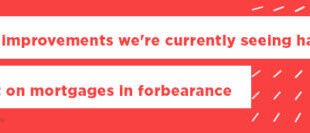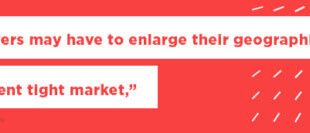
There are many different types of home loans you can apply for.
The most common type of mortgage used today is a conforming loan.
This article takes an in-depth look at conforming loans, what they are, and who qualifies.
Rate Search: Check Today’s Mortgage Rates
What is a Conforming Loan?
A conforming loan is a mortgage that does not exceed the conforming loan limits set by the Federal Housing Finance Agency (FHFA) and meets the underwriting guidelines of Fannie Mae and Freddie Mac.
The conforming loan limit is $ 510,400 in most parts of the U.S. and is $ 765,600 in certain high-cost areas.
Fannie Mae and Freddie Mac are government-sponsored enterprises (GSEs) that buy 90% of all mortgage loans in the country. Mortgage lenders prefer to offer conforming loans because they can sell them on the secondary mortgage market quickly.
Conforming Loan Limits
2020 Conforming Loan Limits | ||
# of units | Low-cost area limit | High-cost area limit |
$ 1,184,925 | ||
$ 1,472,550 | ||
The most important factor in whether a loan is conforming or nonconforming is the loan amount. For a mortgage loan to be conforming, it must meet the FHFA loan limits, which is $ 510,400 in most parts of the country and goes up to $ 765,600 in high-cost areas such as Los Angeles and San Fransico.
Use the FHFA’s interactive map tool to lookup the conforming loan limit in your county.
The Housing and Economic Recovery Act (HERA) requires the conforming loan limit to be adjusted every year to reflect average U.S. home price increases.
Conforming Loan Requirements
You need to meet specific requirements to qualify for a conforming loan. The requirements pertain to your credit score, debt-to-income, and the type of property you are purchasing, whether it’s a primary residence or investment property.
Factors that determine borrower eligibility:
- Credit Score – The minimum credit score requirement for conforming loans is 620. The higher your credit score, the better chances you have at getting approved and receiving the most favorable loan terms.
- Loan-to-Value Ratio – The loan-to-value ratio is the loan amount versus the purchase price of the home. A conforming loan has a maximum LTV ratio of 97%, meaning you will need at least a 3% down payment. The more you put down, the lower the loan-to-value ratio will be. Borrowers with at least a 20% down payment will not be required to carry mortgage insurance.
- Cash Reserves – You cannot empty your entire savings into a mortgage. For some types of loans, you will be required to have at least three months of mortgage payments in reserves.
- Debt-to-Income Ratio – Your debt-to-income ratio is the amount of your monthly income that goes towards your debt obligations such as auto loans and credit cards. The maximum debt-to-income ratio for a conforming loan is 43%.
Conforming vs. Nonconforming Loans
Conforming loans meet the purchase standards of Fannie Mae and Freddie Mac. Most importantly, meet the conforming loan limits of $ 510,400 in most areas, up to $ 765,600 in high-cost areas. Nonconforming loans do not meet Fannie Mae and Freddie Mac standards to be purchased on the secondary mortgage market.
Nonconforming loans include jumbo loans and home loans backed by government agencies such as the Federal Housing Administration (FHA loan) or U.S. Department of Veterans Affairs (VA loan).
Conforming Loans vs. Conventional Loans
The two are often confused because all conforming loans are conventional loans, but not all conventional loans are conforming. While most conventional loans meet the conforming loan standards and are sold on the secondary market, some conventional loan programs do not meet the Fannie Mae and Freddie Mac standards.
Benefits of Conforming Loans
A conforming mortgage loan has many advantages, such as low-interest rates, flexible down payment, and credit guidelines.
- Low mortgage rates – Conforming loans have low interest rates, especially for borrowers with good credit scores.
- Standard Requirements – Conforming loans have standard guidelines and requirements that are usually the same with every lender, making them easier to shop for.
- Low down payment – The maximum loan-to-value ratio is 97%, so borrowers may qualify with just a 3% down payment, making them a great loan option for borrowers without a lot of money to put down.
- Low credit scores – Conforming loans require a 620 credit score. They are a great loan option for borrowers with less than perfect credit.
- Loan Term Options – A conforming mortgage has many different loan term options such as a 15-year and 30-year fixed-rate mortgage, or an adjustable-rate loan term.
- Higher loan limit – Conforming loan limits are higher than FHA loans.
Frequently Asked Questions about Conforming Loans
Is a conventional loan the same as a conforming loan?
Conventional loans and conforming loans are often seen as being synonymous. All conforming loans are conventional loans, but not all conventional loans are conforming.
What is the difference between conforming and nonconforming loans?
A conforming loan meets the standards of Fannie Mae and Freddie Mac, mainly meeting the conforming loan limits. Nonconforming loans are government-backed home loans such as FHA loans; or jumbo loans, which exceed the maximum conforming loan limit.
What is the conforming loan limit?
In most counties, the loan limit is $ 510,400. In high-cost areas such as New York and San Fransico, the loan limit is $ 765,600. Use FHFA’s interactive map tool to lookup the loan limit in your area.
Bottom line: Is a Conforming Loan Right for You?
Conforming loans are the most common type of home loan used in the U.S. for a reason. They have lower interest rates and more flexible requirements on the types of properties that are eligible, but they aren’t for everyone.
A nonconforming loan such as FHA, VA, or a USDA loan has more flexible credit and income requirements make them an ideal loan program for borrowers with lower credit scores or higher debt-to-income ratios.
Low-income borrowers and borrowers with credit issues will have difficulty qualifying for a conforming loan.
It’s important to shop around with multiple lenders to find the right loan for you because loan terms and borrower requirements will vary by lender.



